Health Literacy and Culturally Competent Communication in Healthcare
VerifiedAdded on 2021/05/30
|10
|586
|14
Report
AI Summary
This report delves into the critical aspects of health literacy and culturally competent communication within the healthcare sector. It emphasizes the importance of linguistic competence and non-verbal communication, highlighting how these elements contribute to effective patient-provider interactions. The report underscores the significance of understanding diverse cultural perspectives to enhance patient care, improve health outcomes, and reduce health disparities. It also discusses the benefits of health literacy, such as improved patient understanding, trust, and adherence to treatment, as well as the negative consequences of poor health literacy, including increased hospitalizations and medication errors. The report references key studies and guidelines, providing a comprehensive overview of the topic and its implications for healthcare professionals. It aims to educate healthcare providers on how to communicate effectively with patients from diverse backgrounds.
1 out of 10
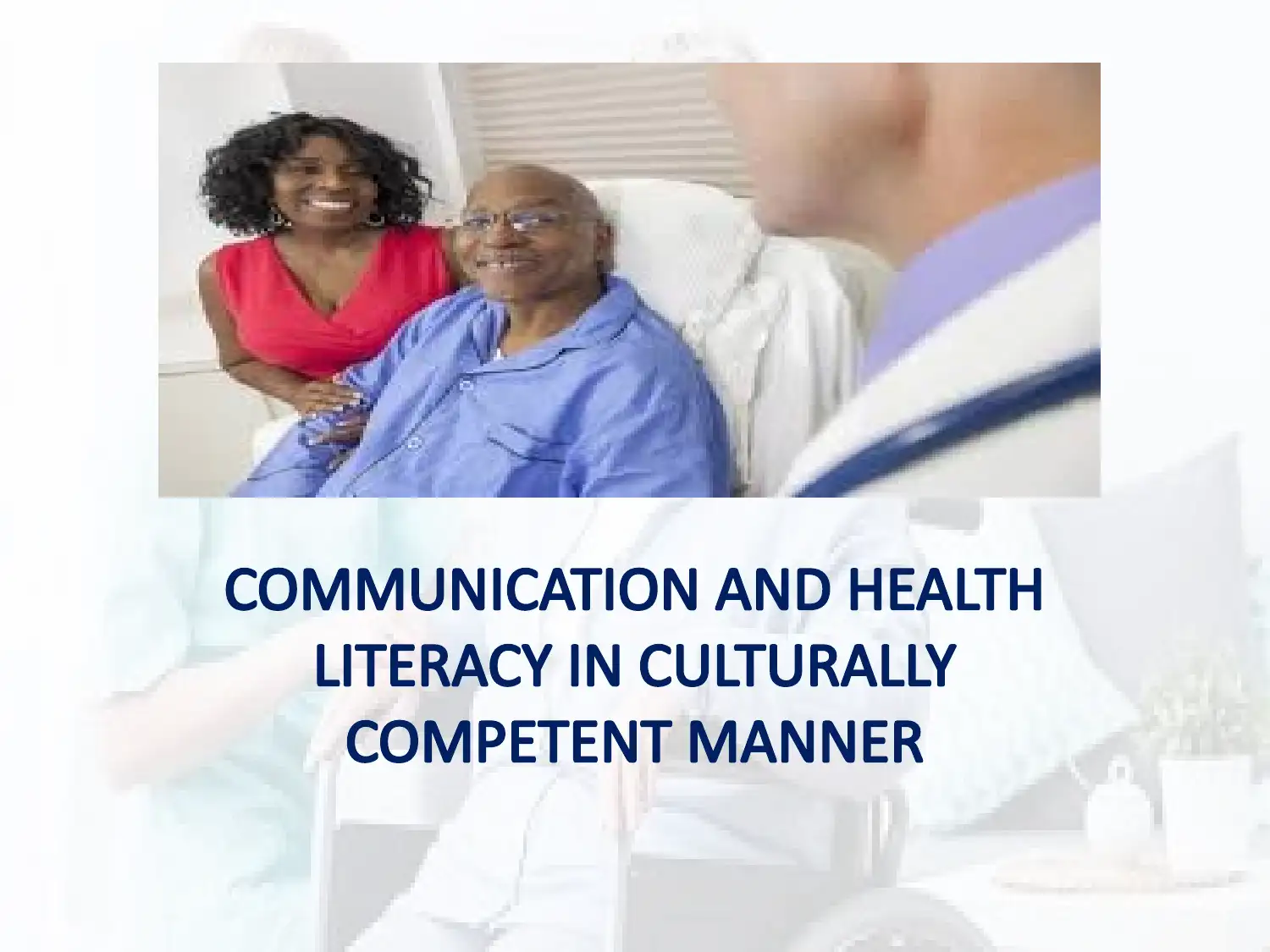
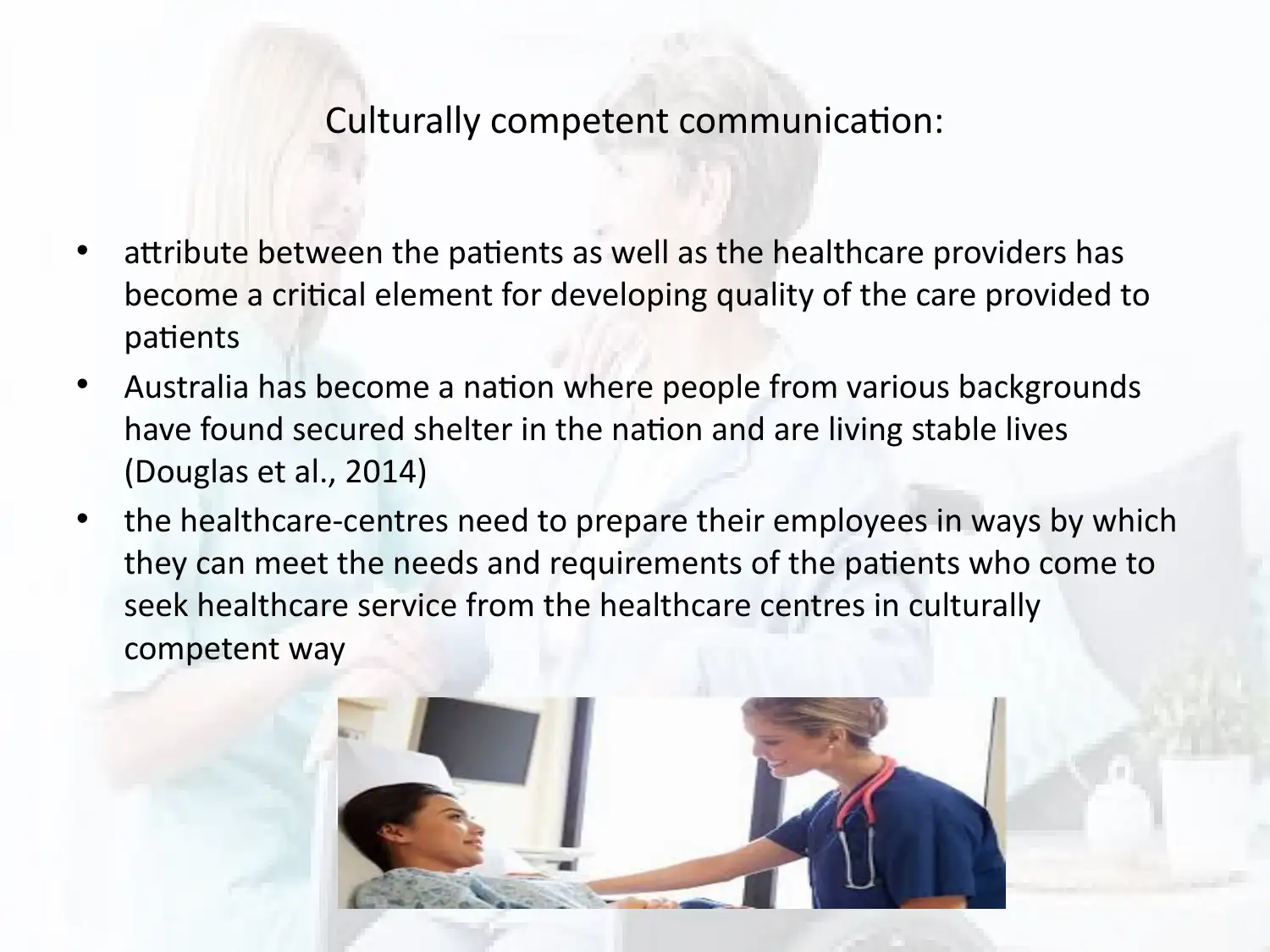
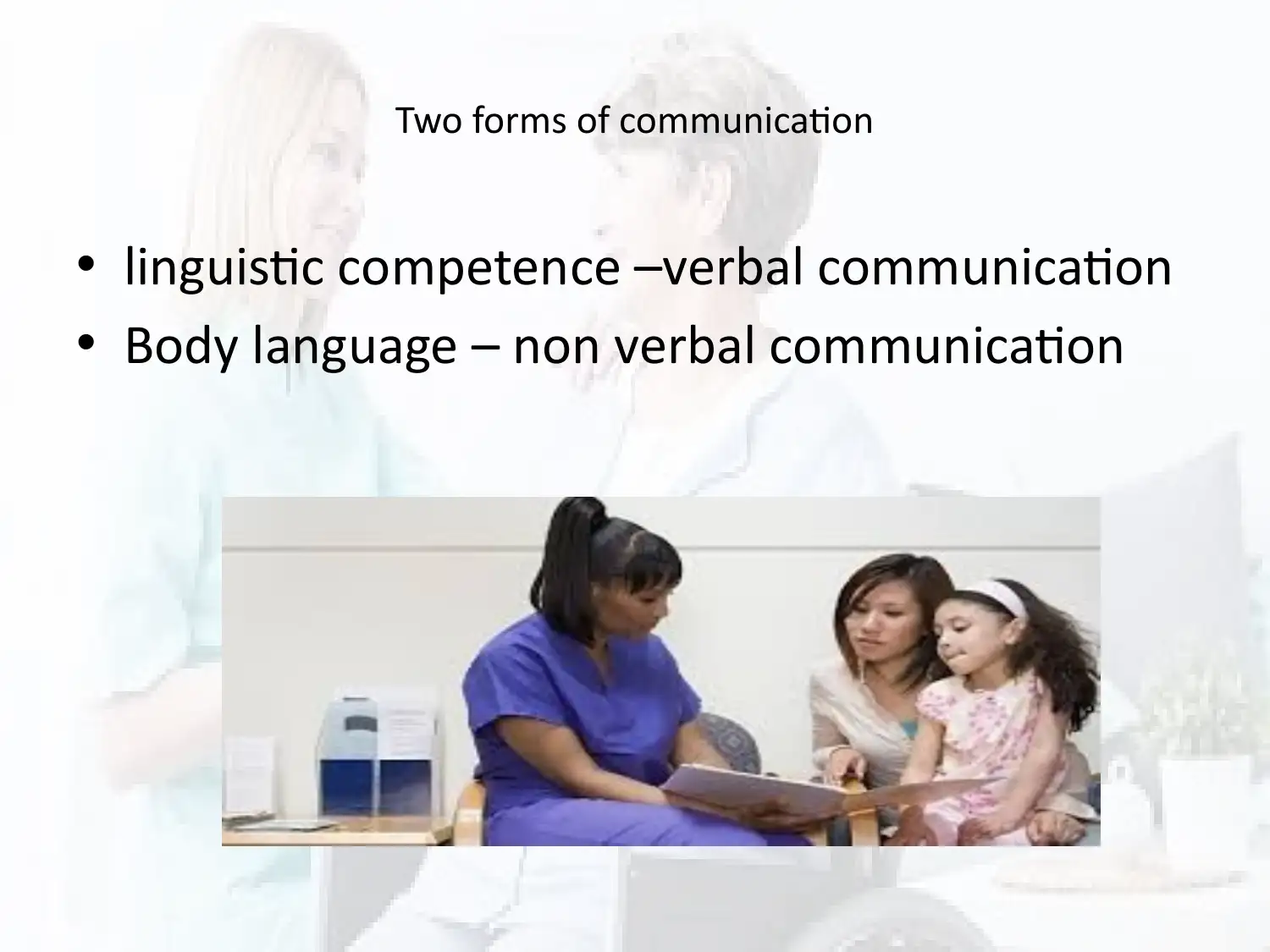

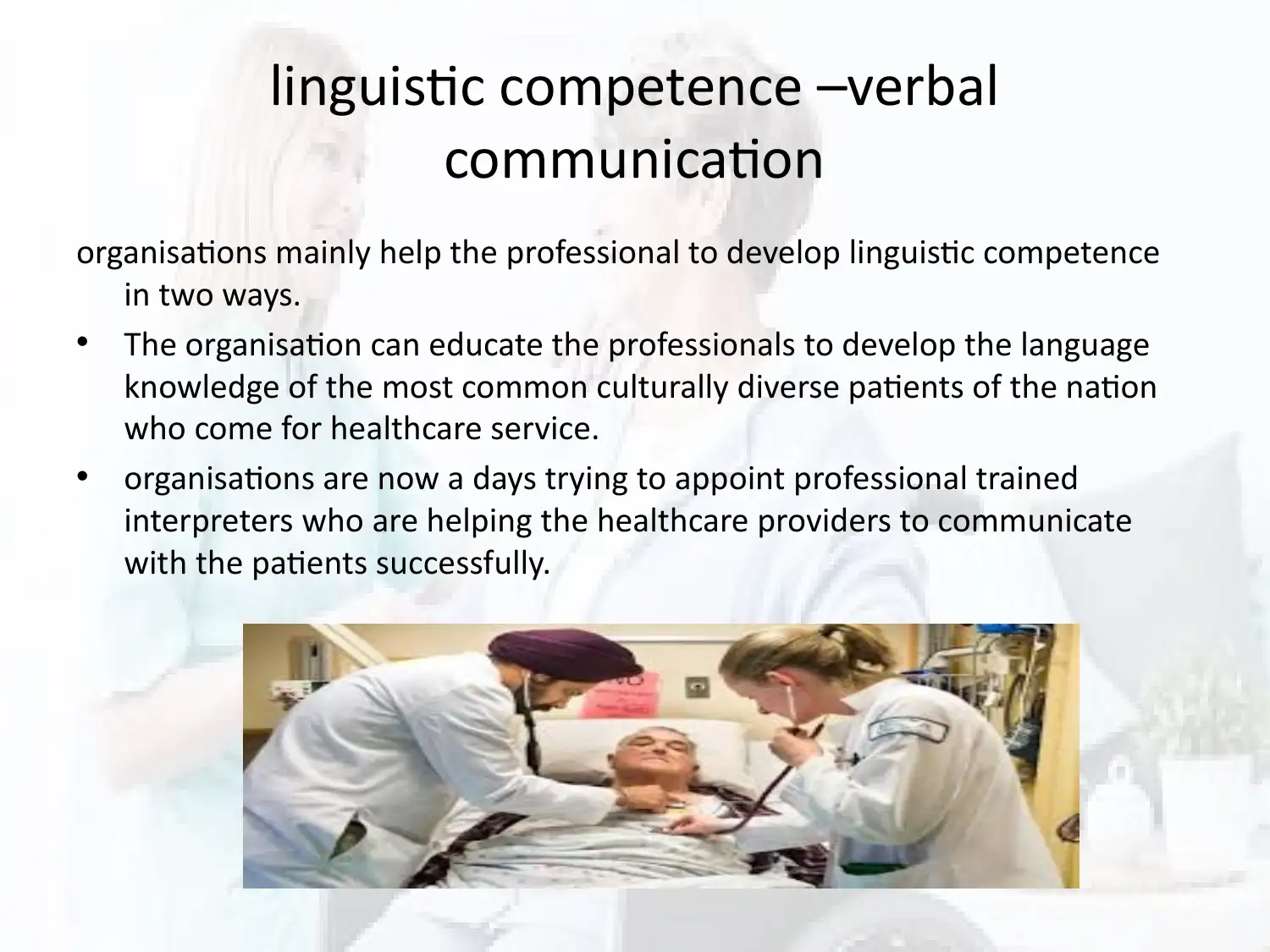
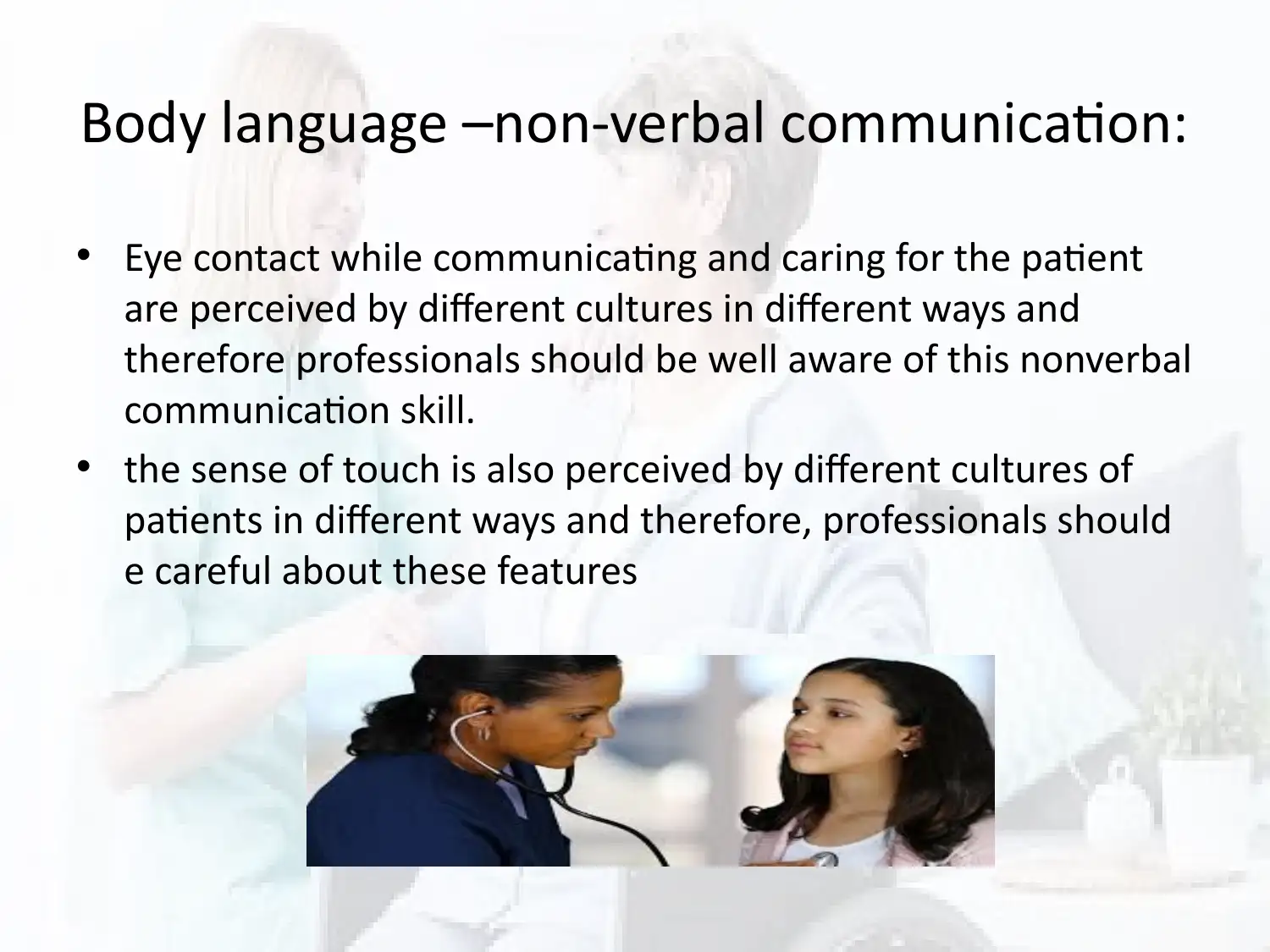
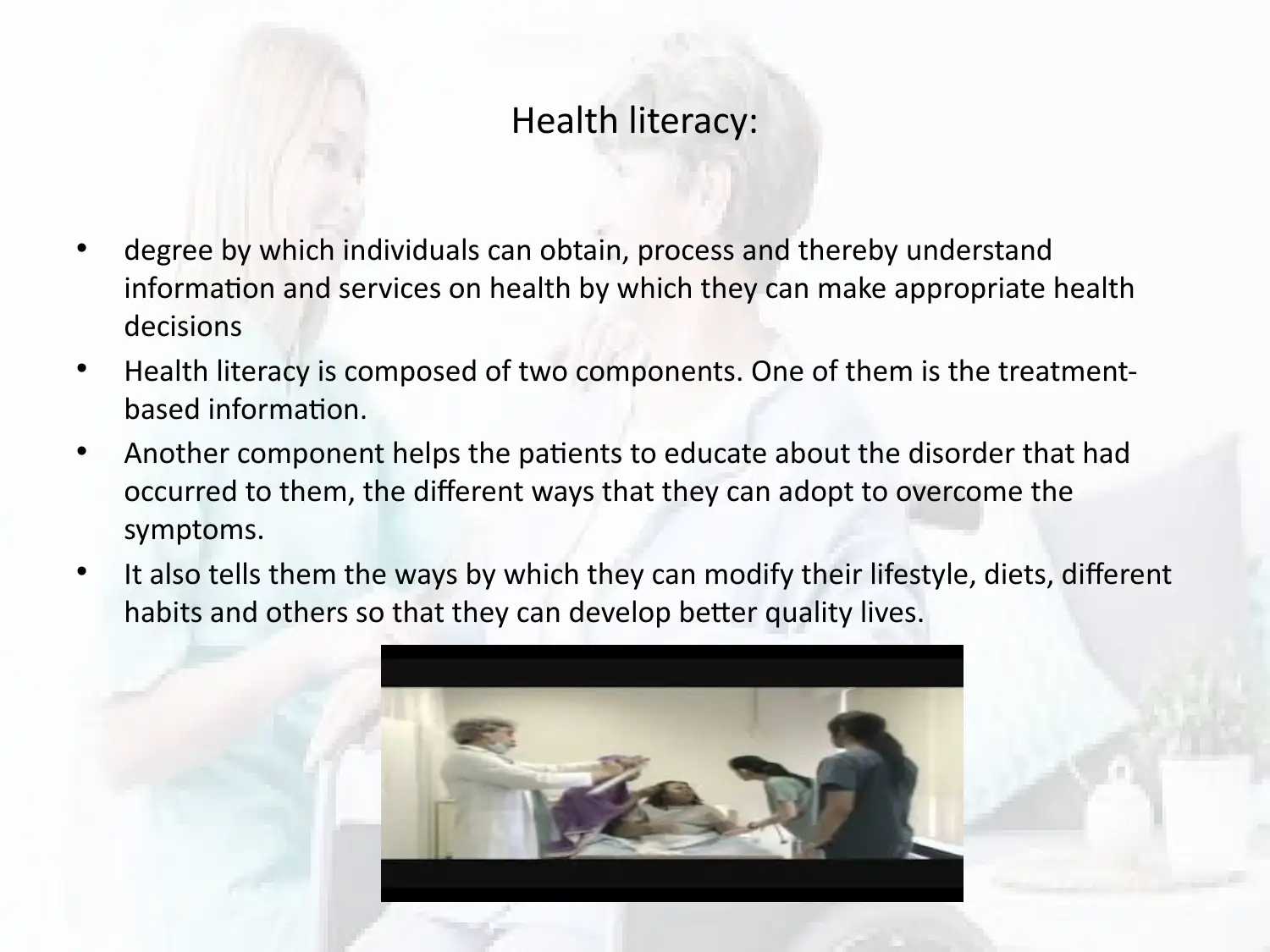
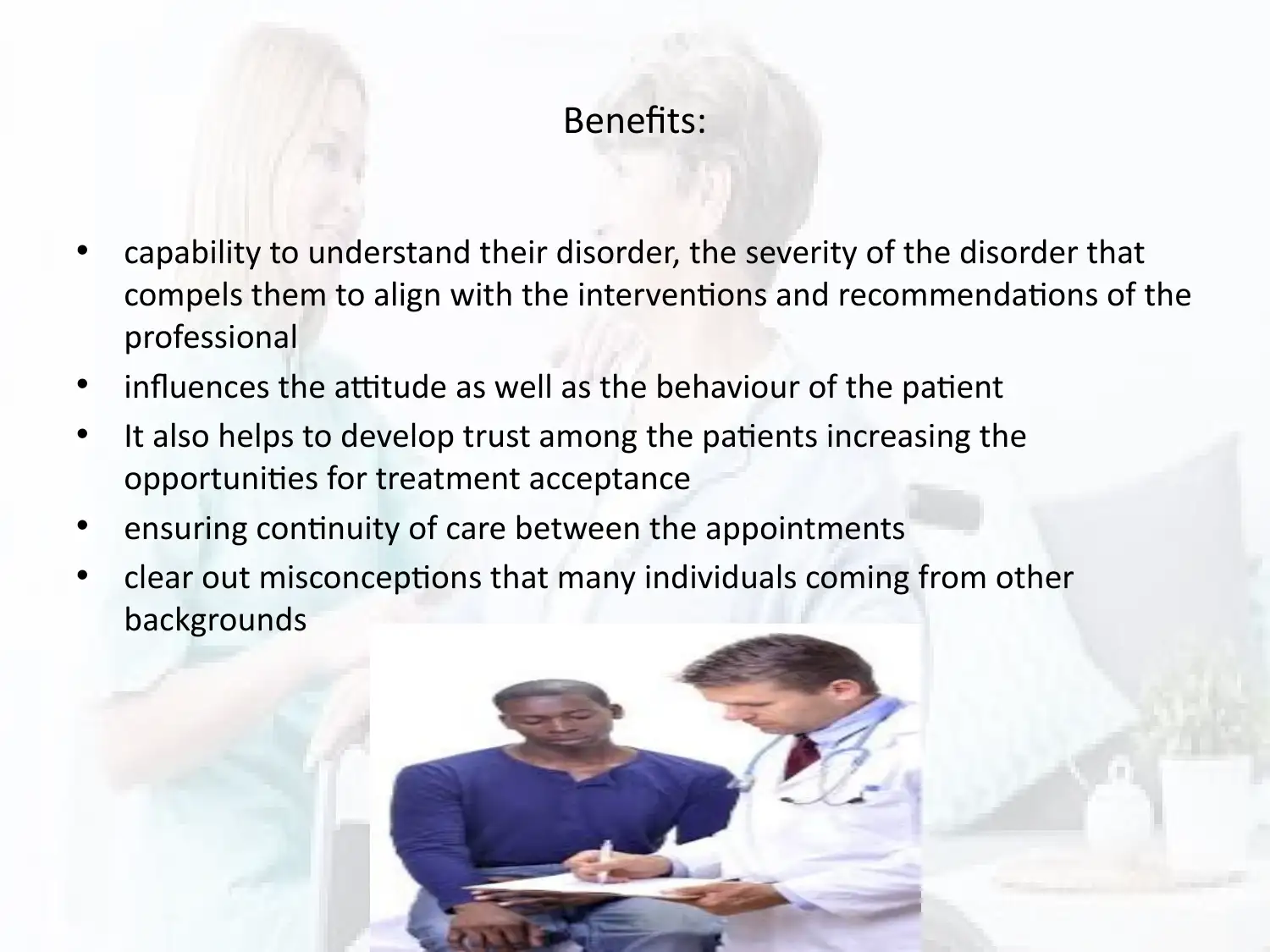
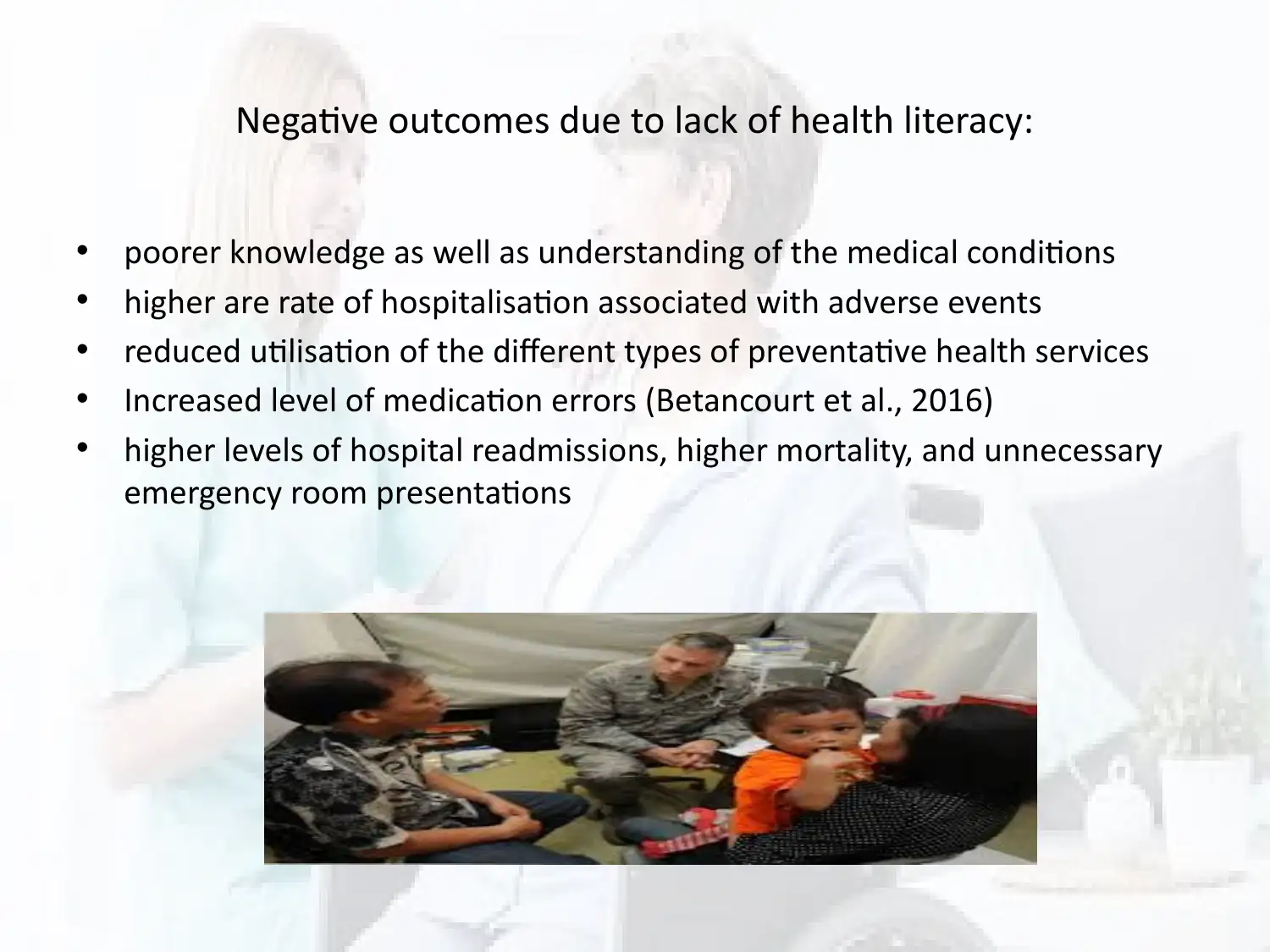
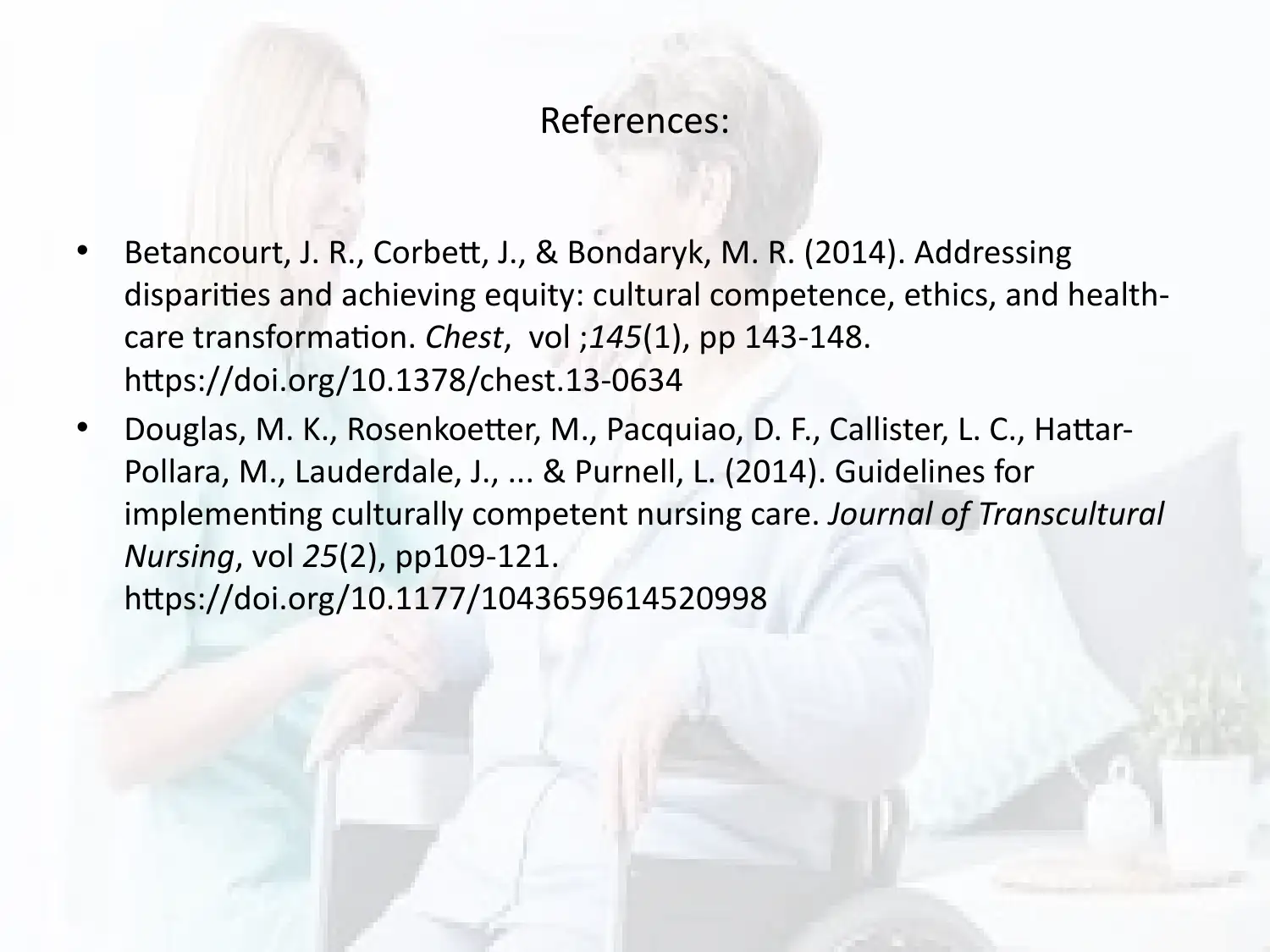







![[object Object]](/_next/static/media/star-bottom.7253800d.svg)